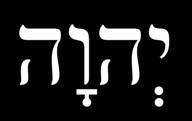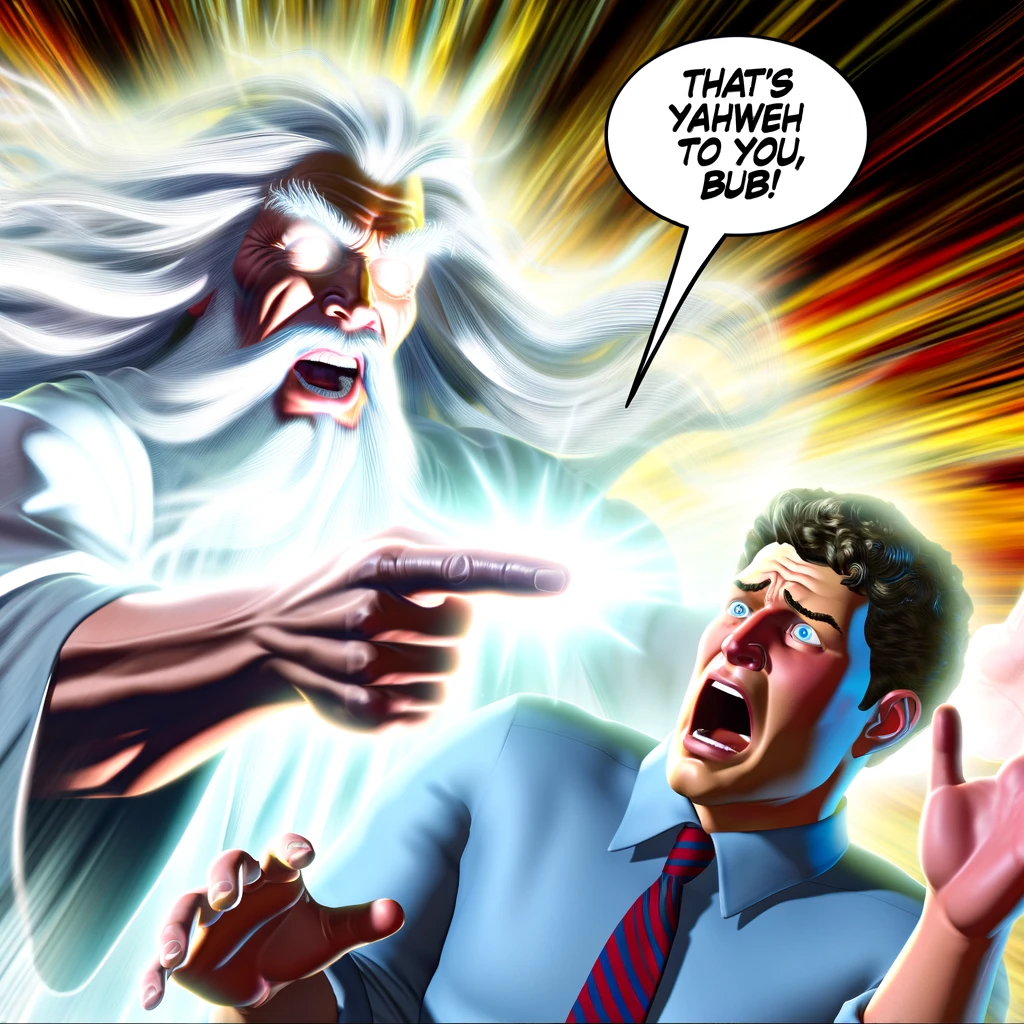 Being that few of my friends and neighbors have names that really mean something to us, (Other than Marsha Mello, Amanda Lynne, and Justin Case Yelle). I am intrigued about the psychological impact of living in a culture that makes you feel like you stumbled into a mafia film, having neighbors called things like Caleb “Dog,” (Numbers 13:6) Elon “Oak Tree” (Genesis 26:34) and Rebekah “Nose Harness.” (Genesis 22:23) which suggested she was “ensnaring… alluring.”
Being that few of my friends and neighbors have names that really mean something to us, (Other than Marsha Mello, Amanda Lynne, and Justin Case Yelle). I am intrigued about the psychological impact of living in a culture that makes you feel like you stumbled into a mafia film, having neighbors called things like Caleb “Dog,” (Numbers 13:6) Elon “Oak Tree” (Genesis 26:34) and Rebekah “Nose Harness.” (Genesis 22:23) which suggested she was “ensnaring… alluring.”
Of a more particular fascination for me, are the names given to gods in the ancient world, who had the advantage of earning new ones through stories of their great or ignominious deeds. In the ancient text of Enuma Elish, for instance, the great warrior storm god, Marduk “Solar Calf” takes on 50 names, like, “Barashakushu—Worker of Miracles” and “Luggaldimmerankia—Puts order into CHAOS.” J. K. Rowling gave us a great one in Tom Marvolo Riddle, aka Lord Voldemort, aka “He who must not be named.”
A consideration of the names of God in the Bible is fascinating. I’ll have to take some time in the future to unpack the beauty of many of them, like, YHWH of Hosts, Redeemer of Israel (Isaiah 54:5), God Almighty (Genesis 17:1), etc… but of particular interest for today, and tomorrow if you tune in, is the name, YHWH.
Why, yes! I do often leave the vowels out of the name on purpose. I learned Hebrew from a Rabbi, who tolerated the use of the consonants alone, and I studied at Harvard with a lot of Jewish students whose own sensibilities reinforced the habit. It was regarded as a bit free-spirited to use even those. They do not even write the word God… using G-d instead. They do not say the name of God when reading Scripture, replacing it with HaShem “The Name.”
As concerns YHWH, the story, as I learned it, says… Once upon a time, in real time not fairyland time, the Hebrew Bible had no vowels. Then around the time of David (1000ish B.C.), a system developed that used a handful of consonants, like “Y” and “W,” to represent long vowels. Some 800 years after Christ, another system developed that used dots and dashes to mark all the vowels. This preserved the traditional way of reading the text, and gave Old Testament scholars lots to talk about for thousands of years thereafter. Well, at some point in Israelite history, before the dots and dashes were included in the manuscripts, the covenant name of God became too holy to pronounce. It was replaced when reading with words like “Lord” or “God.” So, in time, the proper pronunciation was either lost or fell into doubt. So when they began to add the dots and dashes, which would state explicitly how to pronounce the name of God, they did something fascinating, if a bit confusing.
They decided to keep the consonants of the Bible exactly as they received it, thus יהוה YHWH. But they also decided to put in the vowels for the word they wanted the reader to say when they were reading. Weird, I know… but they did it, and all we can do is deal with it.
This is where this word JEHOVAH comes from. It is a strange attempt to read the consonants of YHWH with the vowels of the Hebrew word LORD.[1] There is no such word as Jehovah; I’m sure this will come as a shock to his Witnesses… though I doubt they read my blog. (They are welcome and encouraged to sign on though. Tell them about it if you see them.) This may also come as a bit of a surprise to those who have memorized a 100 Jehovah-Blah names in the popular lists of God names, like Jehovah-Nissi, Jehovah Jireh, and Jehovah-Rapha, but you can just replace Jehovah with YHWH and all that energy will still have been well spent. YHWH doesn’t have the same ring to it without the vowels, but we’ll discuss that tomorrow in,”Psst… Yahweh doesn’t mean “I Am.”
Now, as concerns calling God by a made up name for centuries, I wouldn’t have a cow about it. God knows who we were talking to, and having made up 100’s of words in my lifetime, I’m the last person with a right to complain too much about it. I just thought you’d like to know.
Rats! I think I may have just ruined dozens of songs for you. Sorry!
[1] This is an accurate, but overly simple summary of the whole issue… anyone who looks at the vowels for Adonai will recognize that the scribes have done something kinda hinky… but what I’ve said will have to do for today. I wouldn’t want to blow a head gasket.
Discover more from Biblical Literacy with Dr. Andrew D. Sargent
Subscribe to get the latest posts sent to your email.


